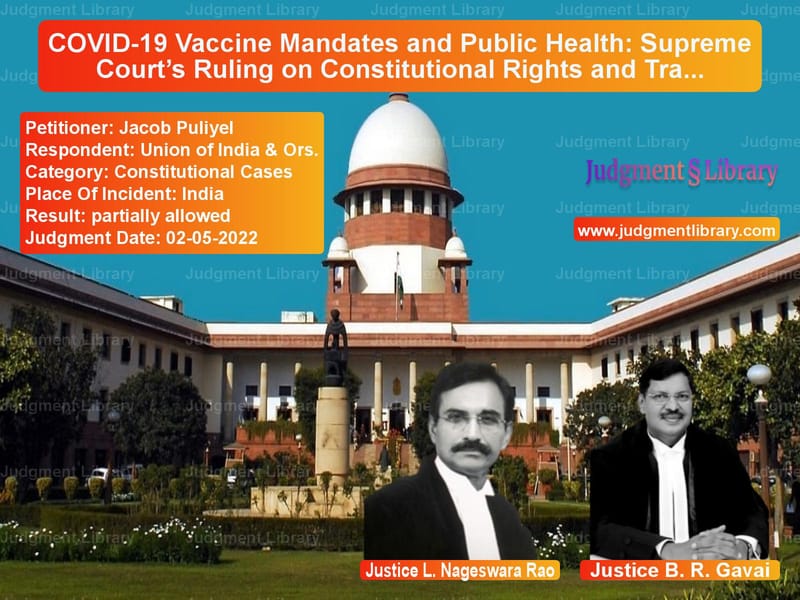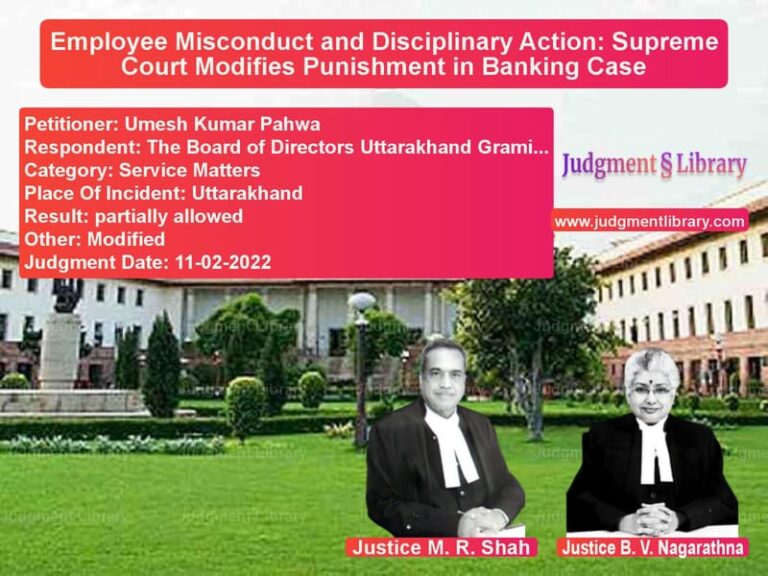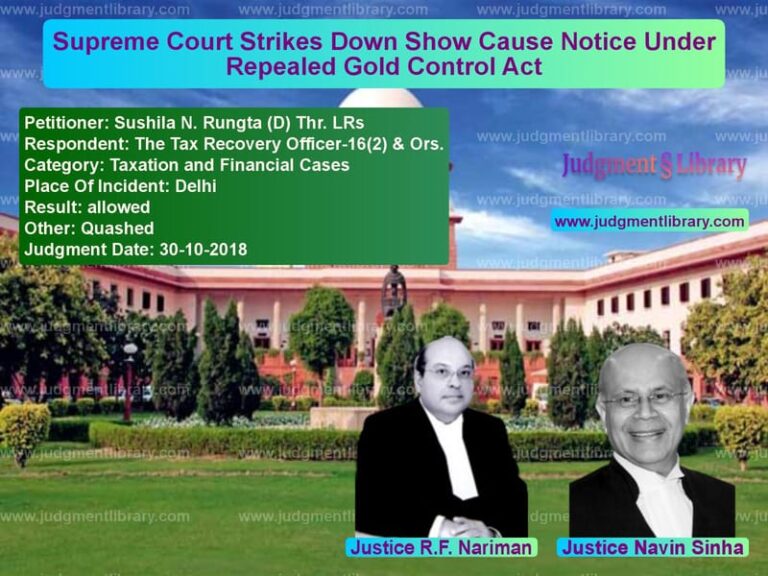COVID-19 Vaccine Mandates and Public Health: Supreme Court’s Ruling on Constitutional Rights and Transparency
The Supreme Court of India, in a landmark ruling, addressed critical issues surrounding COVID-19 vaccine mandates, transparency in clinical trial data, and individual rights under Article 21 of the Constitution. The case, Jacob Puliyel vs. Union of India & Ors., was brought forth by Dr. Jacob Puliyel, a former member of the National Technical Advisory Group on Immunization (NTAGI), challenging the government’s policies on vaccine mandates and the non-disclosure of clinical trial data.
Background of the Case
Amidst the COVID-19 pandemic, India implemented one of the largest vaccination drives in history. While vaccines were initially voluntary, several state governments and private organizations mandated vaccination for access to workplaces, educational institutions, and public spaces. The petitioner raised concerns about the lack of transparency in clinical trial data and the legality of vaccine mandates that restricted the movement and employment of unvaccinated individuals.
The primary contentions in the case included:
- Whether vaccine mandates violated fundamental rights under the Constitution.
- Whether the government had adequately disclosed trial data to ensure transparency.
- Whether natural immunity from prior infection provided better protection than vaccination.
- Whether restrictions imposed on unvaccinated individuals were constitutionally valid.
Arguments of the Petitioner
Dr. Puliyel and his legal team argued that vaccine mandates violated bodily autonomy and the right to make informed medical decisions. The key points presented were:
- The Constitution guarantees the right to life and personal liberty under Article 21, which includes the right to refuse medical treatment.
- Vaccine mandates were coercive, as they restricted employment, education, and public access for unvaccinated individuals.
- Trial data should be made fully public to allow independent verification of safety and efficacy.
- Natural immunity following COVID-19 infection was scientifically proven to be as effective, if not more, than vaccine-induced immunity.
- Adverse effects of vaccines needed independent investigation, and the government had failed to provide a transparent mechanism for self-reporting and compensation.
Arguments of the Respondents
The Union of India defended its vaccination policy, citing public health concerns and expert recommendations. The government’s key arguments were:
- The vaccination drive was essential to prevent severe illness and reduce the burden on healthcare infrastructure.
- The vaccines had undergone rigorous evaluation by regulatory authorities, including the NTAGI and Subject Expert Committee (SEC).
- Vaccine mandates were within the power of states to prevent the spread of infectious diseases.
- Trial data was available in peer-reviewed journals and regulatory filings, with necessary confidentiality maintained.
- Restrictions on unvaccinated individuals were justified to protect public health and were temporary in nature.
Supreme Court’s Observations and Judgment
The Supreme Court ruled in favor of voluntary vaccination while upholding the government’s right to conduct a mass immunization program. The key findings of the Court were:
- Vaccine mandates must be voluntary: The Court held that bodily integrity is protected under Article 21, and individuals cannot be forced to take vaccines.
- Restrictions on unvaccinated individuals must be proportionate: The Court found that some state-imposed restrictions were excessive and disproportionate, given the lack of conclusive evidence that unvaccinated individuals posed a greater threat than vaccinated ones.
- Transparency in vaccine approval and trial data: The Court directed the government to publish all relevant trial data in an accessible manner, ensuring public confidence.
- Self-reporting of vaccine adverse effects: The Court emphasized the need for a streamlined, independent reporting mechanism for vaccine-related adverse effects.
- Children’s vaccination: The Court upheld pediatric vaccinations as a policy decision backed by scientific recommendations.
The judgment emphasized the principle of proportionality, stating:
“Restrictions imposed by the State that affect fundamental rights must be necessary, reasonable, and proportionate to the goal sought to be achieved.”
Further, on transparency, the Court stated:
“Citizens have the right to access information on public health measures, and the non-disclosure of critical data undermines public trust in government policies.”
Implications of the Judgment
The ruling has far-reaching consequences for public health policies and constitutional rights in India. Key takeaways include:
- Freedom of choice in vaccination: While vaccines are encouraged, no individual can be compelled to take them under threat of restrictions.
- Greater government accountability: The government must ensure transparency in clinical trial data and adverse effect reporting.
- Judicial review of public health measures: Courts will scrutinize executive actions that impose disproportionate restrictions on fundamental rights.
Conclusion
The Supreme Court’s decision in this case reinforces the balance between public health imperatives and individual rights. It acknowledges the importance of vaccination while ensuring that citizens are not forced into medical treatments against their will. The ruling serves as a precedent for future legal challenges involving medical mandates and government transparency.
Petitioner Name: Jacob Puliyel.Respondent Name: Union of India & Ors..Judgment By: Justice L. Nageswara Rao, Justice B. R. Gavai.Place Of Incident: India.Judgment Date: 02-05-2022.
Don’t miss out on the full details! Download the complete judgment in PDF format below and gain valuable insights instantly!
Download Judgment: jacob-puliyel-vs-union-of-india-&-ors-supreme-court-of-india-judgment-dated-02-05-2022.pdf
Directly Download Judgment: Directly download this Judgment
See all petitions in Fundamental Rights
See all petitions in Public Interest Litigation
See all petitions in Constitution Interpretation
See all petitions in Judgment by L. Nageswara Rao
See all petitions in Judgment by B R Gavai
See all petitions in partially allowed
See all petitions in supreme court of India judgments May 2022
See all petitions in 2022 judgments
See all posts in Constitutional Cases Category
See all allowed petitions in Constitutional Cases Category
See all Dismissed petitions in Constitutional Cases Category
See all partially allowed petitions in Constitutional Cases Category







